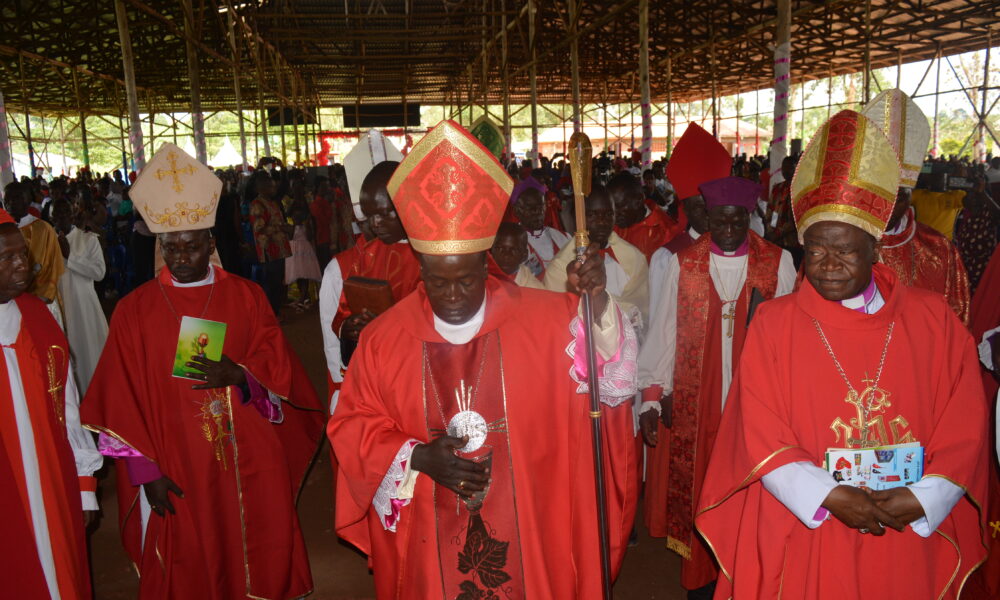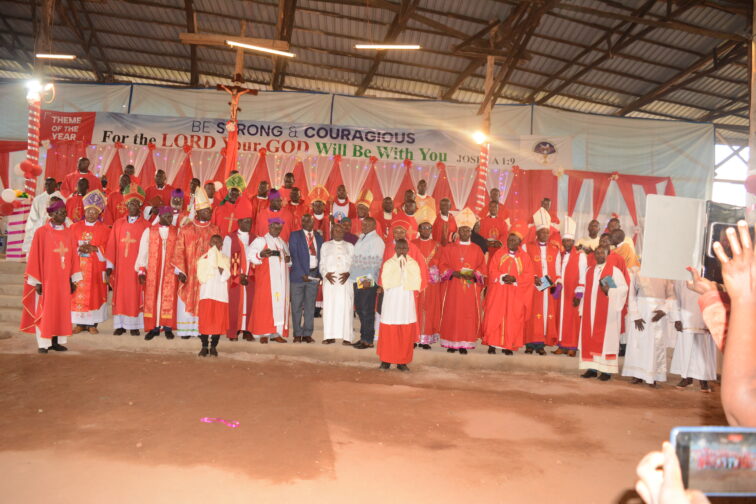
On a day meant to honor Uganda’s most revered Christian heroes Martyrs day, Bishop Jacinto Kibuuka, Chairperson of the Christian Ecumenical Council of Uganda (CECU), delivered a searing yet balanced call that cut across political lines and laid bare the nation’s recurring electoral wounds. The Martyrs Day celebrations held at Mamre International Prayer Centre in Namugongo Janda on June 3rd became more than a religious observance, it transformed into a bold moral platform for justice, peace, and accountability.
Standing before thousands of pilgrims who gathered in solemn reflection and unity, Bishop Kibuuka used the occasion to directly address the persistent issue of electoral violence, calling out security agencies for their repeated use of excessive force against civilians, particularly during election campaigns, rallies and actual polling day.
“As CECU, we urge all Ugandans to remain calm,” Bishop Kibuuka began, “because where there is no truth, there is no peace. We therefore call for truthful, just, free, and fair elections so that our country may thrive in freedom, peace, and development.”
His voice steady but impassioned, the bishop did not mince words in rebuking the government’s tendency to showcase overwhelming military might during elections a practice he linked to widespread fear, voter suppression, and even injury or death.

“Government should stop threatening Ugandans with big powerful guns and all kinds of weapons, especially during elections. The torture and battling of civilians not only harms innocent people but also silences their ability to choose freely. If we do things truthfully, Uganda will flourish.”
However, in an unmistakable tone of balance and spiritual maturity, Bishop Kibuuka also turned his gaze towards opposition supporters and civilians, cautioning them against provoking security forces or engaging in violent demonstrations.
“We also urge you, civilians, to be calm and peaceful,” he said. “Stop provoking wars and battles. Where there is conflict, there is always sorrow, tears, and unnecessary death.”
In a moment of rare reconciliation, the bishop extended gratitude to the same security agencies he had earlier criticized acknowledging their successful effort in maintaining peace during the Martyrs Day celebrations.
“I wish you could do the same even during elections,” he said with a note of hope. “Protect us in peace and harmony like you have done today.”
Bishop Hannington Bahemuka, Vice Chairperson of CECU and the day’s main celebrant, deepened the spiritual tone of the event. In his homily, he emphasized that Martyrs Day serves as a vivid reminder of the courage, conviction, and sacrifice made by the early Ugandan martyrs men who died for truth and faith.
“Martyrs Day teaches us the importance of dying for what we believe in,” Bishop Bahemuka preached. “It reminds us to become firm advocates for justice, freedom, and peace, for these are divine rights that glorify God.”
With striking clarity, Bishop Bahemuka reminded the government that peace is born of freedom, not fear.
“Martyrs Day is an opportunity to whisper slowly to the government: if there is no freedom, be sure that people are ready to shed their blood. But this blood is uncalled for so please do not call for unnecessary shedding of blood.”
He concluded by echoing the day’s powerful theme, taken from the Gospel of John 8:32: “The truth will make you free.”
“At all times,” he declared, “truth must triumph above misery, above joy, and in every situation. Truth is what frees the soul and unites a nation.”
Unlike some Martyrs Day events held in more politically charged or chaotic environments, the celebration at Mamre International Prayer Centre was peaceful and deeply spiritual. Attendees not only prayed together but also shared in a communal lunch, underscoring the message of unity and compassion that permeated the day.
Thousands attended, bearing witness not just to tradition, but to a clarion call from Uganda’s spiritual leaders: a plea for peace built not on fear, but on freedom and truth.
As Uganda looks ahead to future elections, the words of Bishops Kibuuka and Bahemuka may well resonate louder than any campaign slogan reminding both leaders and citizens alike that democracy without truth is violence waiting to happen, and that peace without justice is no peace at all.